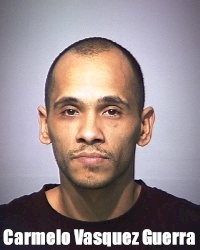 The identity of the pilot of the American-registered DC-9 (N900SA) from St. Petersburg FL caught carrying 5.5 tons of cocaine in Mexico's Yucatan several years ago, long a mystery, finally saw the light of day recently in Mexico.
The identity of the pilot of the American-registered DC-9 (N900SA) from St. Petersburg FL caught carrying 5.5 tons of cocaine in Mexico's Yucatan several years ago, long a mystery, finally saw the light of day recently in Mexico.
Carmelo Vasquez Guerra, a Venezuelan, was the DC9’s pilot who was said to have “escaped” from the airport while his airplane was being seized, and four other members of his crew were arrested.
He was later taken into custody by Mexican authorities, and charged with flying an airplane packed with 128 identical suitcases filled with cocaine.
Getting caught with 5.5 tons of cocaine would seem to call for some serious jail time. Reporters in Mexico assumed he’d been sent to prison for, like… forever.
So imagine reporter Francisco Gomez of Mexico City's El Universal surprise when he made a startling discovery: Carmelo Vasquez Guerra—amazingly and inexplicably—had been released from prison less than two years after being arrested.
The shocking news was delivered via an international headline stating that a pilot named Carmelo Vasquez Guerra had been arrested in the West African nation of Guinea Bissau on a twin-engine Gulfstream II carrying… what else? 550 kilos—a half-ton— of cocaine.
An inexhaustible supply of get out of jail free cards
The date of Vasquez's West African arrest was July 13, 2008.
Mexican authorities had nabbed Carmelo Vasquez Guerra, Gomez learned, not long after authorities discovered him missing from the DC9.
How was it he was out of jail, less than two years later, Reporter Francisco Gomez asked.
Authorities in Mexico refused to discuss Vasquez Guerra's release with reporter Gomez.
But news about Carmelo kept coming, and kept getting worse. Gomez discovered that Mexico was not the only country to arrest Vasquez Guerra for the presumably major offense of flying box-car sized loads of cocaine, only to let him go.
It's happened in three. Caught and released under mysterious and unexplained circumstances. in Mexico, in Guinea Bissau, and in Mali, home of Timbuktu.
Drug pilot Carmelo Vasquez Guerra—or , more likely, the global drug trafficking network to which he belongs, which has, it must be said, a strong and enduring presence in St Petersburg FL, the shuffleboard capital of the world– has an apparent inexhaustible supply of “get out of jail free” cards.
Bloomberg Magazine reporter Michael Smith story last week, "Wachovia’s Drug Habit,” about the bank’s sordid history of laundering drug money for Mexican drug cartels, can be seen in an entirely new light.
Wachovia's nasty habit of moving money around for Mexican drug smugglers, the story reported, provided the clean cash necessary for the purchase of a still-undisclosed number of American planes, including the DC-9, which cumulatively flew at least 22 tons of cocaine, which put the massive drug bust aboard the DC9 back in the news.
The DC-9 from St Petersburg FL is on one end of an equation, with Wachovia, which laundered the money that bought it, on the other.
“Why is there nothing but silence?”
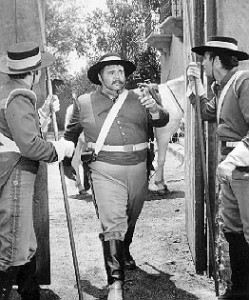 When the story first broke of the massive DC9 drug bust inCiudad del Carmen, one of the ten largest in history at that point, some observers—well, us, at least—noted how embarrassingly thin it appeared in certain crucial details.
When the story first broke of the massive DC9 drug bust inCiudad del Carmen, one of the ten largest in history at that point, some observers—well, us, at least—noted how embarrassingly thin it appeared in certain crucial details.
There were claims of credit for the bust by the DEA, even though early news reports said the coke was disccovered almost by accident, and crediting it to one alert Mexican sergeant, who had remained on duty at the airport after its normal 6 pm closing time.
The sergeant wasn't identified, for obvious reasons. We call him Sergeant Garcia. The DC9 was loaded with a lot of luggage.
But the flight was carrying no passengers. Garcia noticed.
Despite the blandishments of airport personnel, as well as those from a sizeable contingent from Mexico’s Federal Preventive Police (PFP), brave Sergeant Garcia demanded to search the plane.
Ironically, the PFP is a 7-year old FBI-trained federal police force whose main mission is enforcing Mexico’s laws against drug trafficking.
Soon reinforcements arrived. Mexican troops ringed the airport, and surrounded the plane. The co-pilot and other crew members were quickly taken into custody. But the slippery but unnamed chief pilot managed to somehow slither through a crack in the tight security, and slip away undetected.
Worse still, the crafy fellow had also had the presence of mind to take his name with him when he fled. And while the story was still on the front page of Mexican newspapers--while it still mattered– his name was kept out of the newspapers.
Many weeks later, his identity had still not been disclosed. We grew suspicious. And we weren't alone…
“Where are the results of the investigations of the airplane seized with cocaine?” plaintively asked Mexico’s City’s Expreso newspaer two months later.“How is it possible that this confiscation, as important as it is, has not been explained?"
"When will there be information about this?
"Why is there nothing but silence?”
Mexico's drug policy: "Catch and release?"
 The silence was broken the day Carmelo Vasquez Guerra was forced to land an American-registered Gulfstream II (N351SE) at Guinea Bissau's Osvaldo Vieira International Airport.
The silence was broken the day Carmelo Vasquez Guerra was forced to land an American-registered Gulfstream II (N351SE) at Guinea Bissau's Osvaldo Vieira International Airport.
The plane had mechanical problems.
(In our experience, which is admittedly not hands-on, when drug trafficking by professionals goes awry, that is usually the reason.)
The plane got busted. And soon international headlines were reporting it with some excitement.
Even just a few years ago, South American cocaine being shipped to Europe through West Africa was still seen as something of a novelty.
So Carmelo's arrest was more widely publicized than would otherwise have been the case.
Although reporter Francisco Gomez' questioning fell on deaf ears, he learned something very interesting:
Carmelo Guerra Vasquez wasn't the only prominent drug trafficker to have simply "disappeared" after being busted in Mexico. Gomez counted six.
With each arrest authorities held a triumphant press conference to celebrate the latest victory in the war on… whatever. Later, they were quietly released.
With certain favored drug traffickers, is Mexico's drug policy catch and release?
Real courage, real journalists
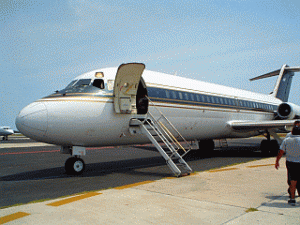 After the DC9 bust, and despite the very real threats faced by all Mexican journalists, Ricardo Ravelo was another Mexican journalist who went looking for answers.
After the DC9 bust, and despite the very real threats faced by all Mexican journalists, Ricardo Ravelo was another Mexican journalist who went looking for answers.
Ravelo,author of a recent book on drug cartels in Mexico, traveled to Ciudad del Carmen. There, he ‘committed journalism,' interviewing people who work at the airport.
Several days before the DC9 landed, they told him, an atmosphere of intrigue hung over the airport, as thick as morning fog.
“On the evening before the DC9 arrived, Ramon (a PFP officer) appeared at the airport with González Virgen, who said he was in the intelligence division of the PFP,” one civilian worker at the airport told him.
“He said they were installing new procedures for registering landings. He would need to speak with all the civil employees of the terminal. And what he wanted to talk about was an ‘economic adjustment’ that would allow the plane loaded with 5.5 tons of cocaine to land the next day.”
Ravelo discovered that as many as a dozen Federal PFP officers had been working to ensure the success of the drug move, including five in Ciudad del Carmen, who attempted to keep airport personnel from calling in the Mexican military.
Other officers visited Mexican airports where the DC9 was scheduled to land, in Toluca and Monterrey, presumably to drop off part of the load.
The DC9 flight was, at some level, officially-sanctioned. What sociologists call "elite deviance:" state-sponsored organized crime.
"Fueling a conspiracy theory" made simple.
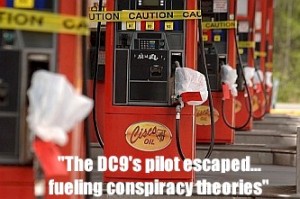 Our suspicion about the Dc9’s pilot’s escape and the subsequent lack of information about him gave a few reporters from the mainstream media the sanction they needed to characterize me as...choke… a conspiracy theorist.
Our suspicion about the Dc9’s pilot’s escape and the subsequent lack of information about him gave a few reporters from the mainstream media the sanction they needed to characterize me as...choke… a conspiracy theorist.
“The DC-9's pilot escaped," Flight International magazine noted dryly, "fuelling conspiracy theories."
According to the St. Petersburg Times, it was all just a ghastly comedy of errors…
Even as they suffered unfortunate business reverses, innocent local businessmen were being unfairly subjected to public derision.
A brief but fair sampling from the paper’s most extensive story on the massive drug operation conducted in their hometown, headlined “Plane with a Past Disappears,” conveys the tone of bored certainty the paper had somehow arrogated to itself.
“(Brent) Kovar is in bankruptcy court,” the paper reported, referring to one of the two last listed owners of the DC-9.
“(Frederic) Geffon, who would not say how much money he lost in the deal, spent weeks in news and internet reports linked to an international drug deal.”
The rusted-out DC-9 wasn't fit to fly, but the aircraft broker from California called anyway. The man known as Jorge Corrales wanted the plane, tail number N900SA.
"How To Tell When You're Being Lied To for Dummies"
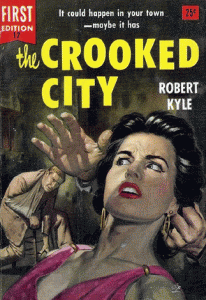 Since the DC9 is now back in the news, we feel moved to offer a few corrections to the folks at the St Peterburg Times, in a good faith effort to, well, help them catch up on the story.
Since the DC9 is now back in the news, we feel moved to offer a few corrections to the folks at the St Peterburg Times, in a good faith effort to, well, help them catch up on the story.
Jorge Corrales is not, and never was, an aircraft broker…
A visit to the three major online venues used to sell airplanes revealed no sign indicating that Jorge “George” Corrales is an aircraft broker.
A LEXIS-NEXIS newspaper database search yields no mention of Corrales and Associates.
A Google search fails to find any aircraft brokers named George or Jorge Corrales, or a Corrales and Associates.
A Trade-A-Plane (an industry magazine for aircraft brokers and dealers) search shows nothing for Corrales & Associates…
And it’s a free listing.
A search for broker/dealers selling McDonnell Douglas DC9’s in California at The Controller revealed just three DC9’s for sale, from just two dealers.
OK Aviation was the listing broker for two of the three DC9’s currently for sale in California.
OK Aviation's owner, Jack Kendall, says he knows every DC9 aircraft broker in the state.
And he has never heard of Jorge Corrales.
Complete this sentence: Frederic Geffon & Brent Kovar should be in…
The FAA stamp on Frederic Geffon'd transfer of ownership documents to the FAA clearly show that, alas
Alas for Geffon, they were received on April 11th... one full day after the Dc9, registered in Frederic Geffon's name, went down carrying 5.5 tons of cocaine.
Geffon's transfer of ownership paperwork hadn't been lost in the mail, either. The papers were faxed.
Whoops! Let's see…
If Mexico's policy towards preferred drug traffickers is "catch and release."
Maybe the U.S. policy can be said to generously offer "mulligans" to its favored transportation contractors.
Do-overs.
Hometown paper of the drug trafficking organization (DTO) in question.
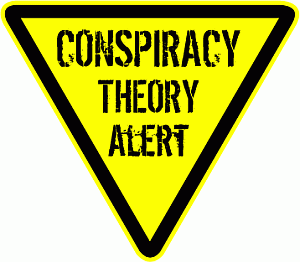 “A conspiracy theorist who runs a popular Web site continues to link both (Frederic) Geffon and (Brent) Kovar to the Mexico bust,” sneered St. Petersburg Times reporter Aaron Scharockman.
“A conspiracy theorist who runs a popular Web site continues to link both (Frederic) Geffon and (Brent) Kovar to the Mexico bust,” sneered St. Petersburg Times reporter Aaron Scharockman.
“The blogger calls the plane "Cocaine One" because of its presidential-looking paint job.”
Apparently, that’s me to whom he's referring
The St. Petersburg Times' incredibly obtuse coverage of the scandal may owe something to it's status as the hometown newspaper of the drug trafficking operation in question.
Still, the paper's coverage illustrates one essential point about drug trafficking.
Everything operates on a sliding scale, depending on who you are, where you are, whom you know, whom you ask, and who you’re ‘with.’
The most important thing is, apparently, to be ‘with’ somebody.
The truth that really hurts is having a press that's less free than Mexico's.
It's humiliating. And while certain elements of the American elite may profit from it…
Once again, the rest of us get stuck with the bill.
"Troubling and unanswered questions"
The story of the willing participation in laundering drug money by what was then America’s 4th largest bank puts a welcome spotlight back on a case with a number of troubling and so-far unanswered questions about two American planes from St Petersburg busted in Mexico carrying 5.5 and 4 tons of cocaine… with no repercussions to their American owners.
The first, an American DC-9 (N900SA) whose livery convinced even savvy planespotters that it belonged to the Dept of Homeland Security (and perhaps it did), was carrying 5.5 tons of cocaine neatly packaged inside 128 identical black leather suitcases, each of which bore a stamp on the side reading “Privado.”
The second, a Gulfstream II (N987SA), had used by the CIA, when it wasn’t running drugs, in Colombia, and to fly extraordinary renditions, making several trips to Guantanamo documented by the EU Commission which was instrumental in charges being brought against a half-dozen CIA agents in Italy.
The Bloomberg story on Wachovia proved that the bank operated as what federal prosecutors usually call “a continuing criminal enterprise,” except, apparently, when large national banks are involved.
U.S. officials have gone after Mexican cartels transporting drugs into the U.S., and even slapped the wrist (lightly) of the huge and dirty bank whose money laundering made it possible.
But they have maintained a conspicuous silence about the American criminal conspiracy which sold planes to the Sinaloa Cartel, despite evidence and testimony and even official DEA documents introduced in extradition hearings in Mexico, freely admitting that the Americans who sold a fleet of luxury jets to their cartel counterparts south of the border were anything but innocent victims of wily drug traffickers.
Perhaps its not too late to put a few of the New American Drug Lords feet to the fire over owning airplanes caught carrying tons of cocaine.
But, hey… we suppose we could be wrong. Its happened before. S— happens, right?
Maybe there is an innocent explanation for everything.
Maybe drugs just show up, unbidden, like unwanted guests.
And maybe Carmelo Vasquez Guerra didn't escape each time he got busted.
Maybe he just "released himself on his own recognizance."